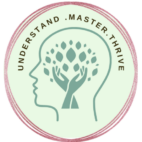
Assessment measures utilised
Functional Capacity Evaluations (FCE) & Comprehensive Functional Assessments (CFA)
A functional capacity evaluation (FCE) or Comprehensive Functional Assessment (CFA) is a comprehensive 3-hour evaluation that assesses the individual’s function in all areas of life, including self-care, home/family care, leisure participation, social participation, sleep and work functioning. It typically starts with an assessment interview. It includes a mental health audit that looks at any existing mental illness and its impact on the client’s functioning. A functional cognitive assessment looks at how difficulty with brain processes like concentration, problem-solving, mental endurance, etc., impacts a client’s functioning at work or in their personal life. Work expectations are assessed in detail. Lastly, the client’s current abilities are weighed against their life or work demands. This enables the Occupational Therapist to make recommendations regarding an intervention plan, including treatment recommendations, recommended work accommodations, and potential referrals to other healthcare team members.
Mental health audits
A mental health audit typically forms part of an FCE, but can also be done in smaller assessments. It aims at identifying potential mental health concerns. It also assesses the impact of such conditions on a person’s functioning. If a potential mental illness is identified, referral and different treatment options are discussed with the client.
Lifestyle Audits
A lifestyle audit typically forms part of an FCE, but will always be included in initial assessment sessions of any kind. This helps the Occupational Therapist identify any life areas that are underdeveloped or absent. Occupational Therapy emphasises the health properties that lie within a balanced lifestyle with adequate attention to and development of all life areas.
Sensory Matrix TM & Senses @ WorkTM
The Sensory MatrixTM is a powerful assessment tool (developed by Sensory IntelligenceTM) that assesses an individual’s sensory processing style and provides a report outlining specific coping strategies that optimise personal functioning for each style.
The Senses @ WorkTM is specifically designed to assess sensory processing style as it pertains to work and identify whether an individual is best suited for home, office or hybrid working.
Sensory Audits
A sensory audit specifically assesses the environmental factors that impact a client’s productivity and coping, based on their unique sensory processing style.
This may include a sensory audit of a client’s home or work environment. This might also include a Sensory AuditTM online assessment that helps persons working from home to optimise their workspace to meet their needs based on their unique sensory processing style. In this way, work productivity is optimised.
Treatment methods used
Occupational Science
Occupational Therapy takes a holistic view of human health and wellbeing. It is also an extremely practical intervention method that empowers clients to function independently in their unique contexts.
Occupational Therapists are trained in task analysis and use this to identify the physical, emotional, psychological and cognitive demands of tasks. We are also trained in understanding human motivation and health. When putting this together we have mastered the art of using activities (ranging from leisure to work to personal care etc.) to heal, but also promoting health in clients to meet the demands of the activities in their lives.
DBT-skills training
Dialectical behavior Therapy-skills training is a highly practical treatment tool that teaches clients the skills to cope better in their lives.
It consists of 4 modules, including:
- Emotional regulation skills
- Distress tolerance skills
- Interpersonal effectiveness skills.
- Mindfulness practice
Change management
Occupational Therapists are well-trained in understanding motivation and assisting clients in overcoming motivational stumbling blocks.
Sensory coaching
Once a client’s sensory processing style is identified, a uniquely tailored plan is developed to:
1. Assist them in meeting their unique sensory needs, which in turn improves their ability to cope with life’s demands.
2. Restructure their home and/or work environments to meet their unique sensory needs, which in turn improves their ability to cope with life’s demands.
Coming soon – Biofeedback & HRV-biofeedback training
Anneke is currently enrolled in Biofeedback and HRV-biofeedback training.
Biofeedback trains participants to activate their body’s internal brake system to help the body reach a state of calmness. The more individuals practice activating this brake system, the more proficient they become in coping when life’s challenges trigger their stress response.
